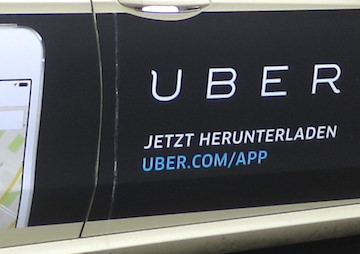Employment in the ‘Gig Economy’ Is Precarious and Fraught With Anxiety
Even before the founding of the transportation company Uber in 2009, "the United States economy was rapidly becoming an Uber economy writ large, with tens of millions of Americans involved in some form of freelancing, contracting, temping or outsourcing,” reports The New York Times. illustir / CC BY 2.0
illustir / CC BY 2.0
Even before the founding of the transportation company Uber in 2009, “the United States economy was rapidly becoming an Uber economy writ large, with tens of millions of Americans involved in some form of freelancing, contracting, temping or outsourcing,” reports The New York Times.
The decades-long shift to these more flexible workplace arrangements, the venture capitalist Nick Hanauer and the labor leader David Rolf argue in the latest issue of Democracy Journal, is a “transformation that promises new efficiencies and greater flexibility for ‘employers’ and ‘employees’ alike, but which threatens to undermine the very foundation upon which middle-class America was built.”
Along with other changes, like declining unionization and advancing globalization, the increasingly arm’s-length nature of employment helps explain why incomes have stagnated and why most Americans remain deeply anxious about their economic prospects six years after the Great Recession ended.
Last year, 23 percent of Americans told Gallup they worried that their working hours would be cut back, up from percentages in the low to midteens in the years leading up to the recession. Twenty-four percent said they worried that their wages would be reduced, up from the mid- to high teens before the recession. …
Contingent workers still represent a limited corner of the nation’s approximately $17.5 trillion economy. But even many full-time employees share an underlying anxiety that is a result, according to the sociologist Arne L. Kalleberg, author of “Good Jobs, Bad Jobs,” of the severing of the “psychological contract between employers and employees in which stability and security were exchanged for loyalty and hard work.”
Read more here.
— Posted by Alexander Reed Kelly.
Your support matters…Independent journalism is under threat and overshadowed by heavily funded mainstream media.
You can help level the playing field. Become a member.
Your tax-deductible contribution keeps us digging beneath the headlines to give you thought-provoking, investigative reporting and analysis that unearths what's really happening- without compromise.
Give today to support our courageous, independent journalists.






You need to be a supporter to comment.
There are currently no responses to this article.
Be the first to respond.